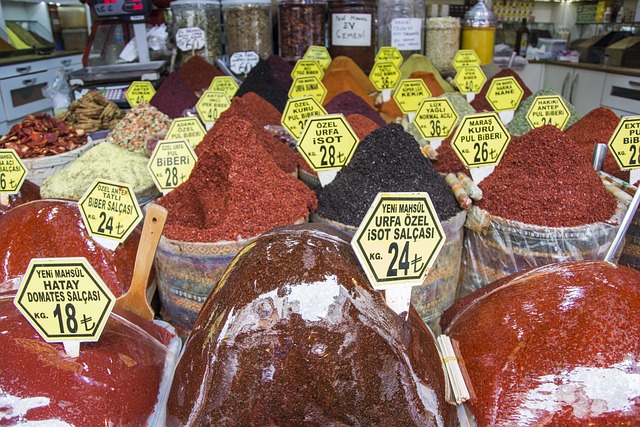Local food delivery and meal preparation services play a critical role in catering to individuals with food allergies and intolerances by maintaining allergen-free kitchen environments and meticulously managing ingredients. These services must adhere to strict protocols to prevent cross-contamination, provide comprehensive staff training on allergen recognition and management, and establish clear communication channels to ensure customer safety and satisfaction. By leveraging technology for customer-friendly ordering systems and utilising allergen-tested ingredients, these services offer personalized meals that accommodate specific dietary needs while fostering trust and a strong reputation for reliability. The growing demand for such safe yet flavorful meal options has led to the emergence of innovative local food delivery services specializing in tailored, high-quality culinary experiences that are both health-conscious and satisfying, making it easier for those with dietary restrictions to enjoy diverse culinary experiences without compromise. These practices not only safeguard consumer well-being but also expand the appeal of these services to a broader market, setting them apart in the competitive landscape of local food delivery and meal preparation.
Navigating the intricate world of dietary needs, this article delves into the critical distinction between food allergies and intolerances within the local food delivery and meal preparation landscape. As these services continue to expand their reach, understanding how to safely cater to individuals with these restrictions becomes paramount. We will explore innovative strategies that local food delivery services implement to ensure safe and appetizing options for all consumers. Additionally, we will highlight meal preparation solutions that prioritize the health and dietary requirements of those with specific food allergies or intolerances, ensuring a seamless integration of safety and flavor in every meal. Join us as we address the challenges and provide insights into becoming an inclusive provider in the local food delivery and meal preparation sector.
- Understanding the Distinction Between Food Allergies and Intolerances in the Context of Local Food Delivery and Meal Preparation Services
- Strategies for Local Food Delivery Services to Cater to Individuals with Food Allergies and Intolerances
- Innovative Meal Preparation Solutions for Safe and Tasty Eating Options for Those with Dietary Restrictions
Understanding the Distinction Between Food Allergies and Intolerances in the Context of Local Food Delivery and Meal Preparation Services

When catering to customers with food allergies or intolerances, local food delivery and meal preparation services must be meticulous in their understanding of the distinction between the two conditions. Food allergies trigger an immune response that can range from mild to life-threatening, necessitating strict avoidance measures. In contrast, food intolerances, while often less severe, still require careful consideration as they can cause discomfort or adverse health effects. For instance, lactose intolerance involves difficulty digesting lactose, a sugar found in dairy products, leading to symptoms like bloating and abdominal pain. Both conditions demand accuracy and attention to detail from service providers. Local food delivery services must ensure that their kitchen environments are free from cross-contamination risks and that ingredients used are accurately sourced and handled. Meal preparation services also need to maintain clear records of ingredient sources and handling procedures to accommodate these dietary needs effectively. By doing so, they not only safeguard the health of customers with allergies or intolerances but also establish a reputation for reliability and trustworthiness, which is crucial for customer satisfaction and loyalty in the competitive landscape of local food delivery and meal preparation. Implementing comprehensive protocols, staff training, and clear communication channels can help these services meet the demands of accommodating various dietary restrictions, thereby enhancing their appeal to a wider customer base with diverse needs.
Strategies for Local Food Delivery Services to Cater to Individuals with Food Allergies and Intolerances

local food delivery services play a pivotal role in accommodating individuals with food allergies and intolerances by implementing tailored strategies that prioritize safety and dietary compliance. To effectively cater to this demographic, these services should first invest in comprehensive staff training to recognize common allergens and the severity of reactions they can trigger. This training enables delivery personnel and meal preparation teams to handle food items with the utmost care, ensuring cross-contamination is minimized. By adopting allergen control protocols, such as separate preparation areas for allergens and maintaining transparent communication channels between customers and chefs, local food delivery services can provide assurance to those with dietary restrictions.
Furthermore, leveraging technology is a key strategy for local food delivery services. Implementing a robust system where customers can clearly list their allergies and intolerances during the ordering process allows for personalized meal preparation. Additionally, these services can benefit from offering an extensive database of recipes that are pre-approved for various dietary needs. By using high-quality, allergy-tested ingredients and providing detailed information on ingredient sourcing, local food delivery services not only cater to the nutritional requirements of their customers but also build trust and a strong reputation for reliability in meal preparation. This commitment to safety and personalization is not just a service offering but a critical aspect that can differentiate a local food delivery service in a competitive marketplace.
Innovative Meal Preparation Solutions for Safe and Tasty Eating Options for Those with Dietary Restrictions

In recent years, there has been a significant rise in the prevalence of food allergies and intolerances, prompting a surge in demand for safe and delicious eating options that cater to dietary restrictions. Innovative meal preparation solutions have emerged to address this need, offering individuals with specific dietary needs the opportunity to enjoy diverse and flavorful meals without compromising their health. Local food delivery services have become particularly adept at accommodating these requirements, ensuring that all ingredients are free from allergens and tailored to individual preferences. These services often partner with local farmers and suppliers to source fresh, high-quality ingredients, reducing the risk of cross-contamination while supporting the community. By utilizing advanced filtration systems and stringent preparation protocols, they guarantee a safe dining experience for consumers with food allergies or intolerances. The result is a meal that not only respects dietary constraints but also celebrates culinary creativity, providing a satisfying alternative to traditional dining options.
Furthermore, the integration of technology has played a pivotal role in this evolution, allowing customers to customize their meals according to their dietary restrictions with ease. Through user-friendly platforms and mobile applications, consumers can specify their allergies or intolerances and receive personalized meal recommendations. This personalization extends beyond dietary needs, as users can also select preferences based on taste, cuisine type, or nutritional goals. The seamless collaboration between technology and local food delivery services has led to a new era of meal preparation that is both accommodating and delightful, making it easier than ever for individuals with dietary restrictions to indulge in the pleasures of eating without compromise.
In conclusion, the discourse on food allergies and intolerances within the scope of local food delivery and meal preparation services has underscored the importance of clear understanding and robust strategies to cater to individuals with these dietary needs. As highlighted throughout this article, ‘Local Food Delivery’ and ‘Meal Preparation’ services play a pivotal role in accommodating diverse dietary restrictions without compromising on taste or quality. By implementing tailored approaches and leveraging cutting-edge solutions, these services can ensure safe and satisfying options for all consumers. As we continue to navigate the complexities of food-related health concerns, it is clear that ongoing collaboration between service providers, health professionals, and consumers will be key to advancing the standards of dietary inclusion and safety.
